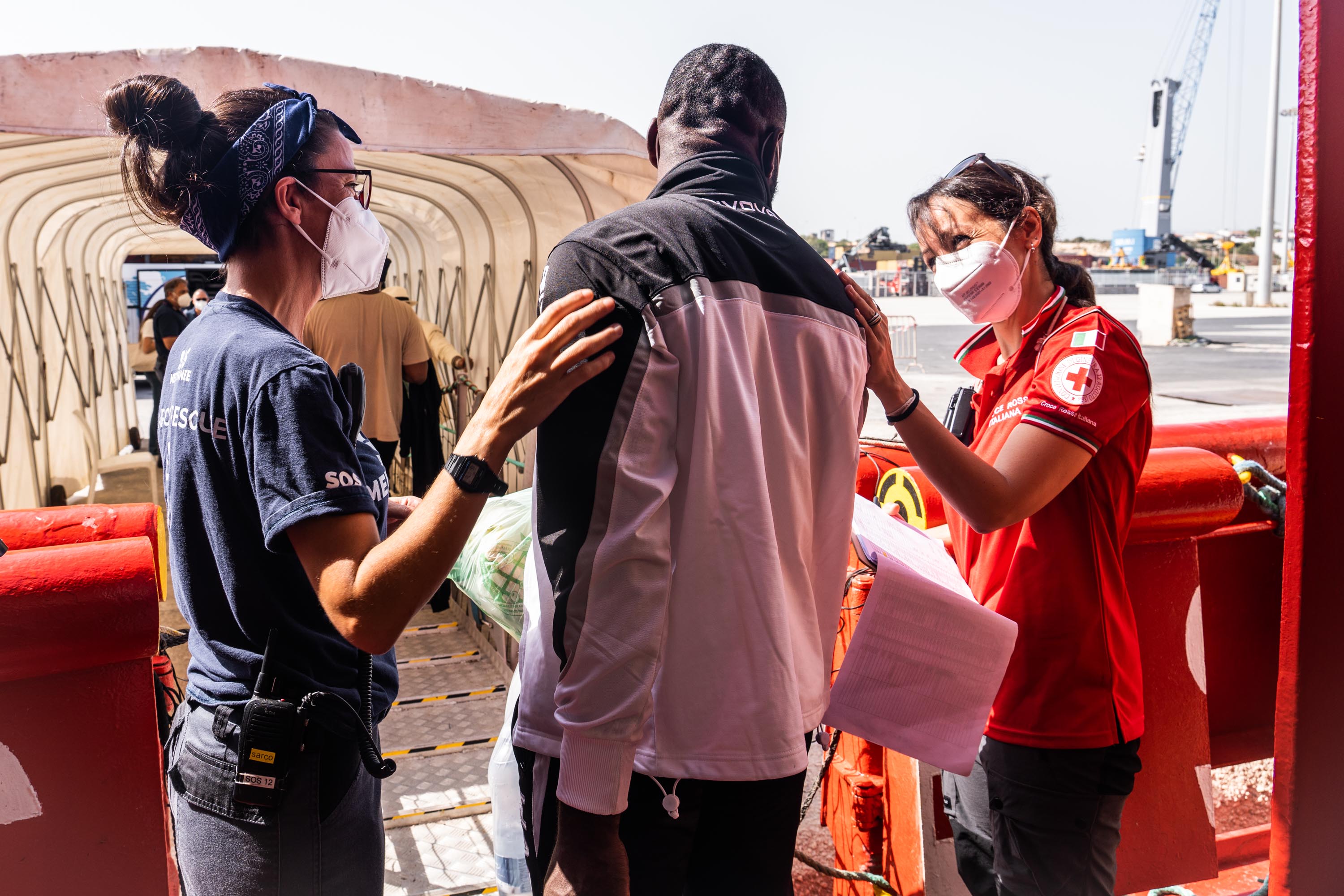Final call for EU governments to put humanity first in EU migration legislation and practice
Ahead of International Migrants Day, the Red Cross EU Office reminds the EU and its Member States that every person, regardless of their nationality or migration status, has a right to dignity and to the respect of their fundamental rights during their journey and on reaching Europe. We call on the EU governments to prioritise the humanity of people and the values of the EU during the last phase of EU Migration and Asylum Pact negotiations.
EU governments and the European Parliament are in the final stages of negotiating the Migration and Asylum Pact – the most extensive effort to relaunch the reform of EU asylum legislation since 2016. This initiative takes place amid increasing political turbulence and a drive to frame migration as a ‘security’ concern. This makes it difficult to ensure that the outcomes and chosen measures are based on facts and evidence and adequately consider their impact on human life, liberty, health, and wellbeing.
The outcomes of this legislative reform are critical. It will determine how human beings are treated when entering EU territory and what space humanitarian actors will have to deliver assistance to migrants. To a large extent, it will determine the image of the EU in the eyes of the rest of the world when it comes to compliance with human rights.

The events at EU external borders and the direction of the Pact legislation governing border management measures are particularly alarming. Reports of violence and mistreatment of migrants across multiple EU borders have not been adequately addressed by focusing on the abuse committed. Instead, legislative proposals have been introduced which risk undermining the human rights of migrants at borders, exacerbating their vulnerabilities and curtailing their ability to reach safety in the EU. The recent crisis which saw hundreds of people rescued from the Central Mediterranean in November then stuck in a political standoff for 15 days is testimony to the increasing politicisation of migrants’ lives and the work of humanitarian actors.
Migration is a complex human phenomenon that requires nuanced solutions and cannot simply be turned on and off at will by revising legislation or increasing the number of border guards and surveillance at EU’s external borders. EU Member States and EU agencies are bound by international law, the existing EU legislative framework and the fundamental rights embedded in it – notably the prohibition of non-refoulement, torture and ill-treatment. This framework is increasingly tested by the Pact proposals focusing disproportionally on strengthening border controls, increasing the use of detention including for children, and enhancing returns. Instead, fair, accountable and high-quality migration and asylum procedures and dignified reception facilities throughout the EU should be at the heart of EU migration and asylum policy.
The reforms must be carried out in a spirit of solidarity and humanity, guarantee accountability at borders, and ensure that border management policies and practices respect the rights and dignity of all migrants, irrespective of their legal status. Humanitarian actors and civil society must be granted the space to operate independently. In today’s context of politicisation and adversity, the ability to access migrants in need, including at land and sea borders, and to deliver lifesaving services has never been more important.
For media inquiries, please contact Eva Oyón on: eva.oyon@redcross.eu or +32 2 235 09 22

